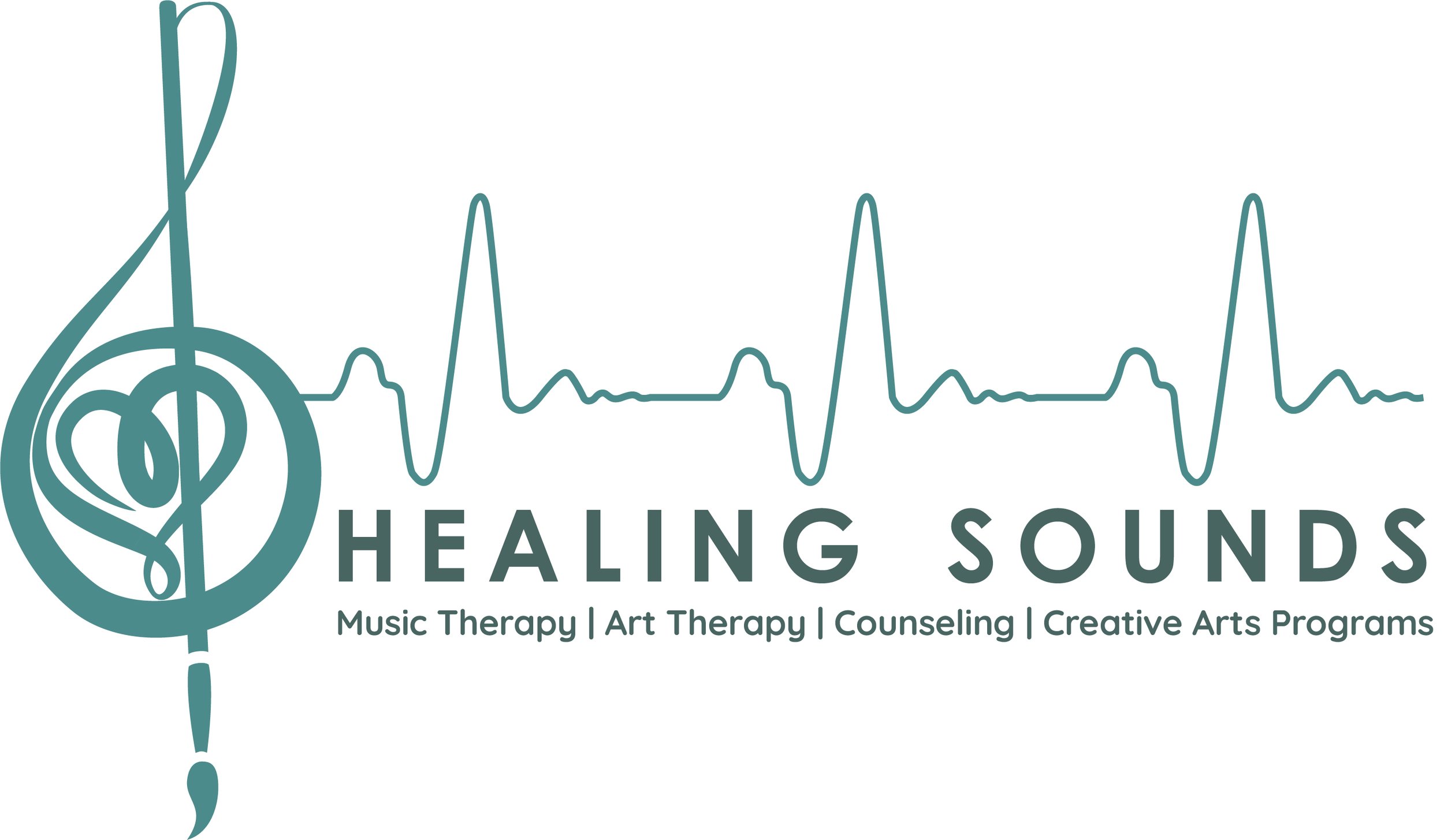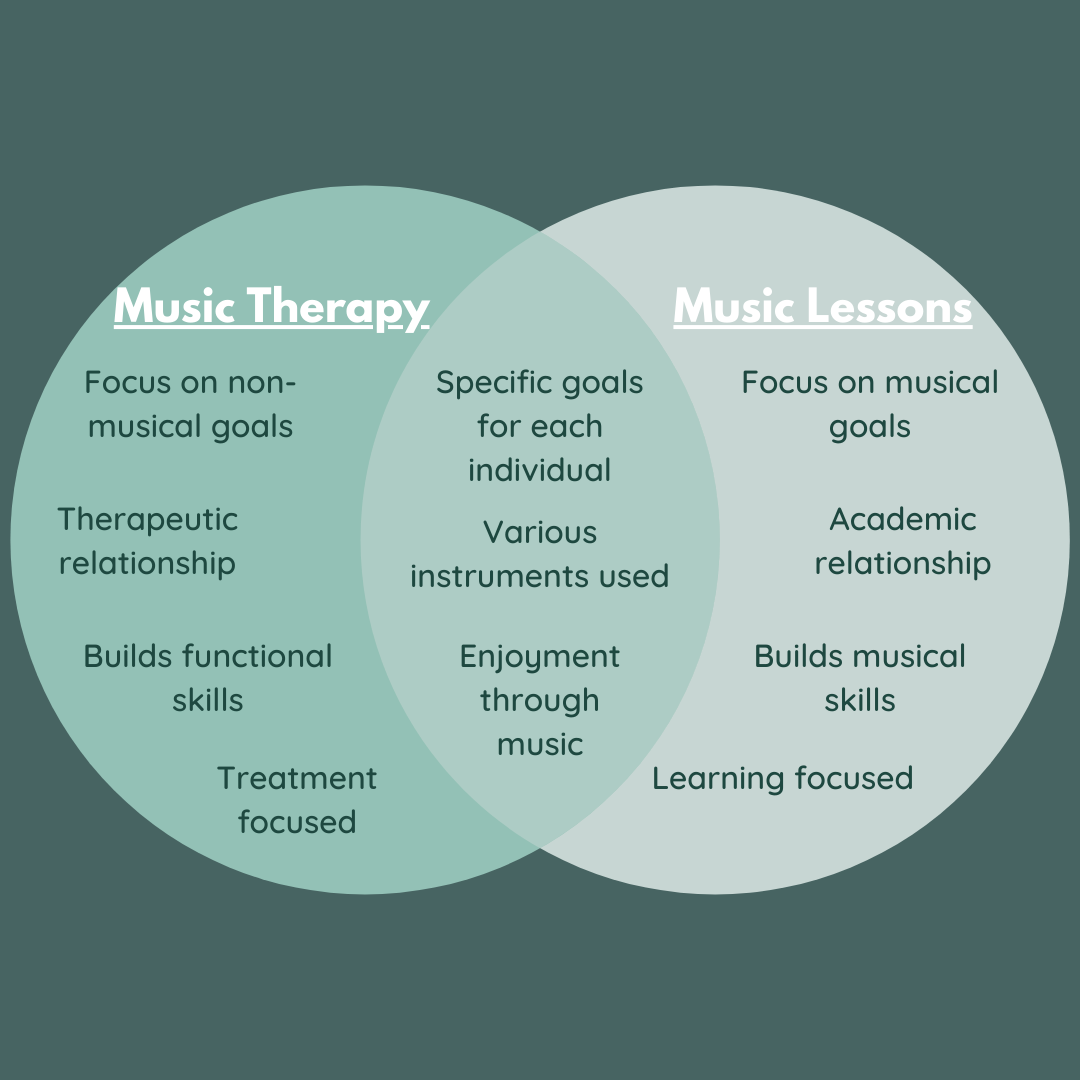Music Therapy and Lessons FAQ
What is music therapy?
Music therapy is the use of music interventions to reach non-musical goals. Similar to OT, SLP and PT, after the completion of a formal assessment, a treatment plan with individualized goals is developed alongside the client or family. Through the use of music therapy techniques, we work on essential skills like socialization, emotional regulation, attention, communication and academics.
What happens in a music therapy session?
Music therapy is based on the strengths, needs and preferences of each client. When developing a treatment plan, a therapist works to highlight strengths, improve needs and to utilize the musical preference and instrument for each client. In general, each session will begin with a check in and a musical warm up followed by music therapy interventions designed to help the client achieve goals. The work will be infused throughout the session, and may involve singing, writing songs, lyric discussion and playing instruments. At times, clients may need musical rewards between sections of work. Each session ends with a goodbye song and a brief conversation with family or caregivers. All music therapy sessions are documented formally according to the treatment plan.
How does music therapy differ from music lessons?
Music therapy is the use of music interventions to reach non-musical goals by a board-certified music therapist. Music educators or instructors utilize music to reach musical goals. While at times, both look the same from the outside, our intentions are different. Educators want clients to learn about music and perform. Therapists want clients to improve their well-being through individualized techniques and interventions. Sometimes that may mean adapted lessons and learning an instrument, but there is no pressure to perform.
Our lessons differ from our competitors due to our ability to adapt lessons to fit the unique needs and music preferences of the student. We are able to individualize the lesson to fit the strengths and needs of the student to include using visual aids to reduce frustration, implementing schedules to keep our students on task, and incorporating music games, rhythm instruments, movement and singing, and musical breaks to maximize learning. We believe that everyone should have a successful experience with music lessons and our therapists are committed to helping you learn the best way you can.
In addition, many of our music therapists are professional musicians and songwriters performing across the Commonwealth. Performance level instruments include voice, guitar, piano, violin, ukulele and saxophone.
Who do you work with?
Our youngest client is 6 months old and our oldest is 105! Our therapists specialize in different areas of development and have a wide array of professional experiences. Schedule a consult to see which therapist and service would be right for you!
How might music therapy benefit me?
Benefits of music therapy depend greatly on the reasons you sought therapy and what goals are developed during the assessment. Each treatment plan is unique; however, many clients see improvements in essential skills like socialization, emotional regulation, attention, communication and academics after music therapy services.
Do you want to see the same improvements? If so, then music therapy can benefit you!
For more information on research on music therapy benefits with specific disabilities, go to the American Music Therapy Association.




